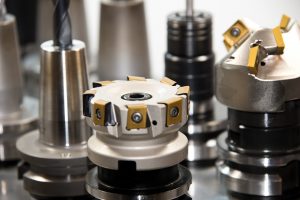
Have you heard of the metal treatment process known as pickling? When most people hear the word “pickling,” they immediately envision the edible vinegar-preserved food of its namesake. However, pickling also refers to a metal treatment process performed by manufacturing companies. By reading this post, you’ll learn about pickling and how it’s able to improve the physical properties of treated metal.
What Is Pickling?
Pickling is a metal treatment process that removes superficial impurities from metal. It’s called “pickling” because it involves the use of an acidic solution known as pickle liquor. The exact composition of the pickle liquor varies depending on the type of metal on which it’s used. For low-carbon steel, pickle liquor typically consists of hydrochloric or sulfuric acid. For high-carbon steel, on the other hand, pickle liquor typically contains additional acids like phosphoric and/or nitric acid.
The Benefits of Pickling
It’s not uncommon for newly produced metal to have a layer of impurities on the surface. Hot-rolled steel, for example, develops an oxide layer when worked. The presence of this oxide prevents the steel from obtaining a smooth and clean surface. Although there are numerous ways to remove oxide from steel, manufacturing companies often prefer pickling because of its simplicity. When pickled, the acidic pickle liquor eats away at the oxide layer without harming or otherwise disturbing the underlying steel.
Even if a piece of metal doesn’t have oxide on its surface, it probably still contains some impurities. It’s not uncommon for newly produced metal to contain inorganic compounds like trace metals. Depending on the application for which the metal is intended, these impurities may hinder its performance. Pickling, however, can remove most impurities thanks to the acidic properties of pickle liquor.
The Basic Steps of Pickling
Pickling is performed by submerging metal in pickle liquor. After working a piece of metal, the manufacturing company will submerge it in the acid solution. The pickle liquor will then eat away at any oxide or other impurities lingering on the surface of the metal.
In addition to pickling, there are other ways to descale and clean metal. Smooth clean surface is an alternative treatment process that offers similar benefits. With smooth clean surface, metal is exposed to an abrasive compound that physically removes surface imperfections and impurities. There’s also abrasive blasting, which involves blasting metal with a pressurized stream of an abrasive solution to create a clean and smooth surface.
No tags for this post.